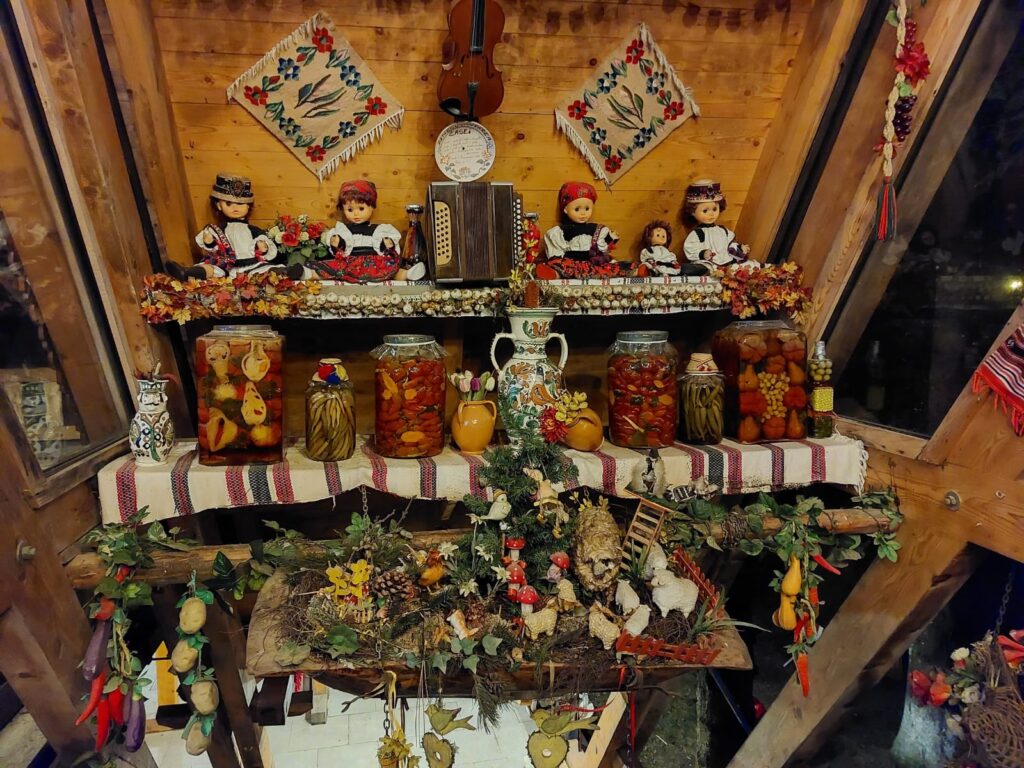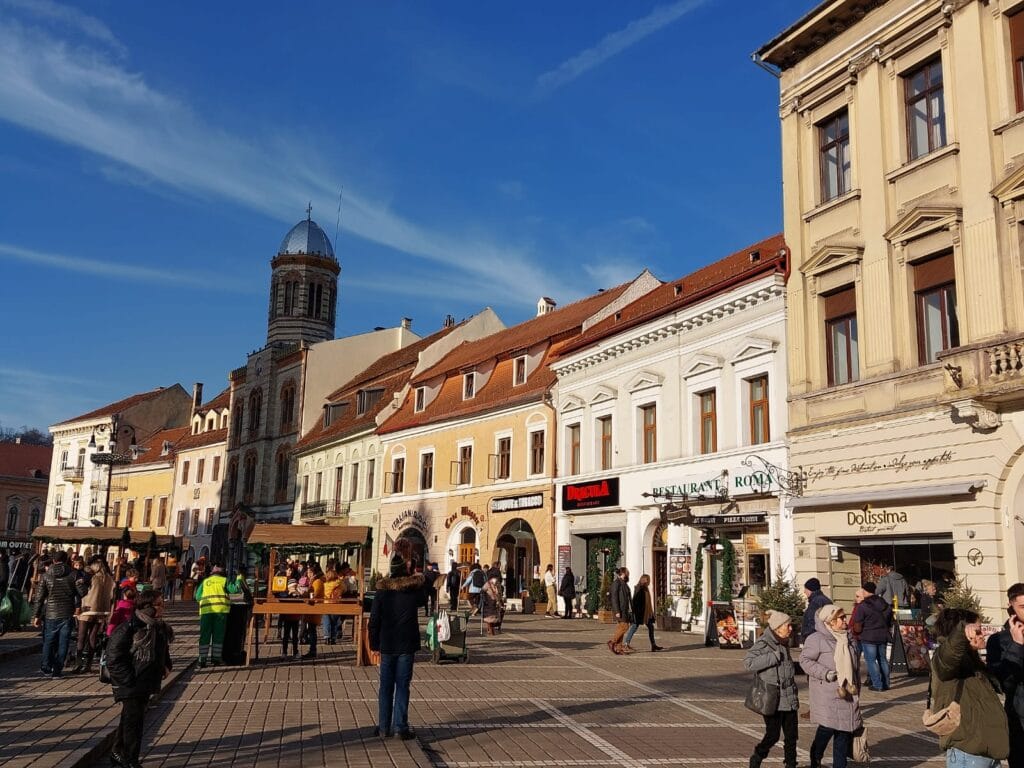Hi there,
My pen name is Mina. Welcome to my blog. I’m Romanian by birth and a nomad at heart. I have lived for a few years across Europe, studying and working in the UK, Spain, France, Portugal, and Malta while travelling to many other countries (there are 50+ countries worldwide and still counting).
In 2023, I travelled for 1 year across Central and South America and then settled in my native country, Romania.
My hope with TheNextEpicTrip.com is to become your go-to blog for the best insights on travelling and living in Romania. You can read more about this blog here. Enjoy it, and don’t forget to leave your feedback.
Table of Contents
- Is Romania a good country to move to? Explaining the current social context
- Who has moved to Romania in recent years?
- How do people who moved to Romania sustain themselves?
- What to expect when you move to Romania?
- The working culture in Romania
- What else should you consider before moving to Romania?
- In conclusion, is Romania a good country to move to?

Is Romania a good country to move to? Explaining the current social context
I’m afraid this is one of those questions that can only be answered with it depends. It is true, though, because it depends on where you lived before, what your expectations are, which city in Romania you will move to, and whether you have children or not.
Someone who buys a remote property in an idyllic Transylvanian village will have a different experience than someone who gets hired by a multinational in crazy-busy Bucharest.
Both experiences are equally valid and reflect the Romanian lifestyle, with the distinction that the latter is more stressful and less romanticised than the former option.
Who has moved to Romania in recent years?
Over the years, more and more non-EU citizens (mostly Asians) moved to Romania for work. Almost 135.342 non-EU citizens made Romania their second home, meaning that for them, Romania is some kind of promised land.
Asian workers
Romania started recruiting workers from Asia to address its great deficit in the employment sector, since almost 6,5 million Romanians moved abroad for better work prospects.
Apart from the immigration wave from Asia, quite a few Romanian expats moved back, hoping to start a new life here.
Romanian Expats and their families
From what I noticed, Romanian expats would move back with their foreign partner/husband and their children. Quite a few couples are documenting their move to Romania on social media nowadays, sparking interest in the online community about this type of experience.
Western European retirees
A third category of people moving to Romania are pensioners from Western Europe. Dutch and Germans chose to relocate to Transylvania due to the affordable cost of living and shared traditions.
Let’s not forget that Transylvania was once part of the Austro-Hungarian Empire, therefore, the German influence still exists in this part of the country.
How do people who moved to Romania sustain themselves?
The impressive wave of Asians moving to Romania usually works in construction, hospitality, catering, food delivery and other services. This community also tends to live in big cities like Bucharest, Timisoara, Cluj, etc. Their main source of income is their wage.
The other 2 categories of people usually have the means to buy properties and land and start their own projects in Romania.
Some are online creators who document their journey, trying to grow a family-run business in Romania. These people usually spent a few years working in Western Europe and managed to save enough to start fresh in Romania. Their income comes from savings and their present side hustles and businesses.
The pensioners also benefit from their pensions on top of the small projects they set up when they relocate to Romania.
I met people who returned and became small farmers. Self-sufficiency, organic, slowly growing, and sustainable agriculture is what most of them aspire to achieve with their farm projects.
As opposed to the Asian workers, the expats and pensioners often chose to relocate to small towns and the countryside, where they have more freedom to pursue their passions.

What to expect when you move to Romania?
As I said at the beginning of this blog post, it depends on where you lived before moving to Romania.
If you’ve lived somewhere with lower living standards, then Romania might feel like quite a catch.
If you’ve lived in a more developed country than Romania, then moving anywhere in Romania might feel like a struggle.
The working culture in Romania is different. I grew up in Romania but worked my whole adult life in the UK. When I relocated to Romania for work, I experienced a reverse culture shock. The same can happen to anyone who works in the UK or somewhere similar to the UK’s working culture.
The working culture in Romania
Things I found different here compared to the UK, where I worked before.
The way colleagues interact at work is different in Romania. Everything is less formal and more straightforward. On top of that, internal processes are overcomplicated and poorly digitalised. Moreover, things like flexible working conditions only exist on paper and don’t get implemented. At least not where I work.
Finally, there is no mental health culture here, organisations simply don’t have mental health departments to raise awareness on this.
Yet, there are a few things that are better than in the UK, like the extra money you get on top of your negotiated salary for going on holiday, for Christmas & Easter and for any major events in someone’s life like the birth of a child or the death of a close relative.
On top of this, most Romanian companies pay their employees meal vouchers (which are extra money so you can buy food) and private health insurance packages.
What else should you consider before moving to Romania?
Below, I prepared a bullet list of the things I noticed since I moved back to Romania. The list is by no means exhaustive and will be updated from time to time.
👎
Romania has a poor railway infrastructure. Most people here rely on cars to get to places, and even then, they complain Romania does not have good roads.
👍
You can still find affordable rental properties. Sometimes you can rent a decent studio in a big city for the price of a room anywhere in the UK. (I compared how much I paid for my studio in Timisoara vs. the room I rented in Norfolk, the UK).
👎
Major cities in Romania are affected by heavy traffic; at peak hours, the city stands still, like everywhere else, to be honest.
👎
Romanian drivers can be quite mean and aggressive. Using the horn for everything that bothers them is quite the norm here.
👍
You can find locally sourced produce for a reasonable price.
👍
The food tastes much better than in heavily industrialised countries, and most people in the countryside still grow their own vegetables; thus, eating healthy is still the norm in Romania. You just need to find where you can buy your products from.

👎
Dealing with public institutions is time-consuming and involves lots of unnecessary bureaucratic steps.
👎👍
You have many options for activities in nature across the country; however, in big cities, more parks and bike lanes need to be built.
👎👍
Due to political instability, Romania has one of the worst-performing economies compared to the rest of the EU countries. The country often experiences high inflation and legislative changes.
You should be OK if you get your income paid in either euro, pound or dollar because the local currency is weaker than any of the 3 currencies.
In conclusion, is Romania a good country to move to?
Romania can be a good country to move to, depending on what type of lifestyle you wish to pursue.
In my opinion, Romania is excellent for anyone looking to escape the big city and start an off-grid life, somewhere in the countryside. You can still find affordable properties and land across Romania, something that’s a luxury in some Western European countries. But you need a good financial income and commit to this type of living.
Working in Romania is not so great due to the rigid working culture, although some sectors (e.g. IT) are better off than others and benefit from more flexibility, higher wages and overall better working conditions.

